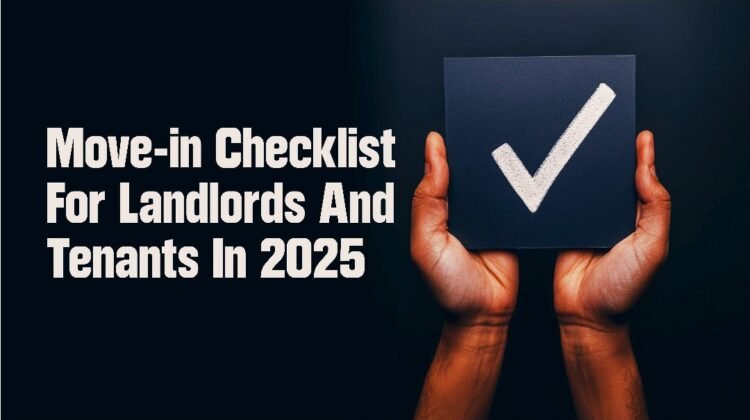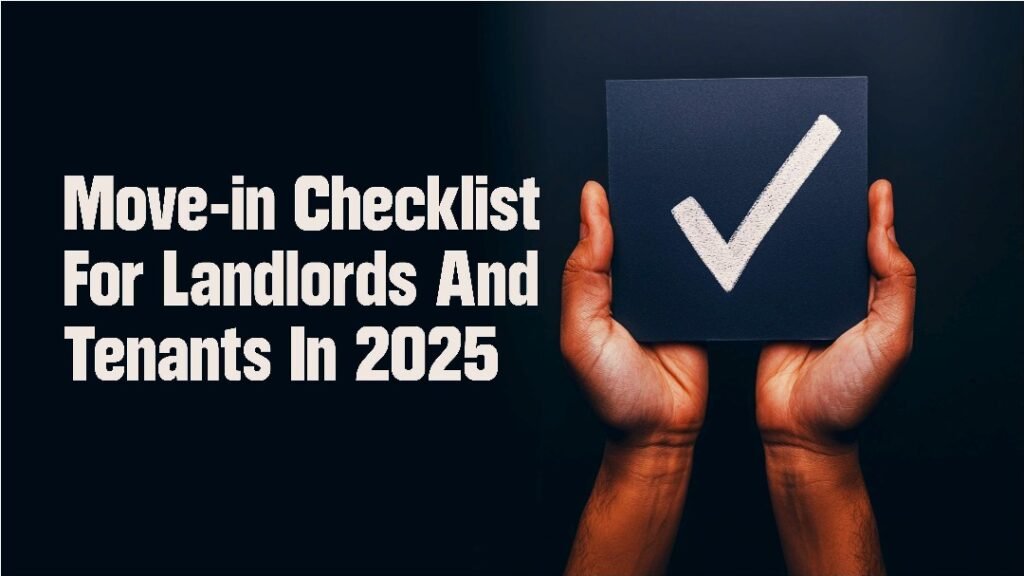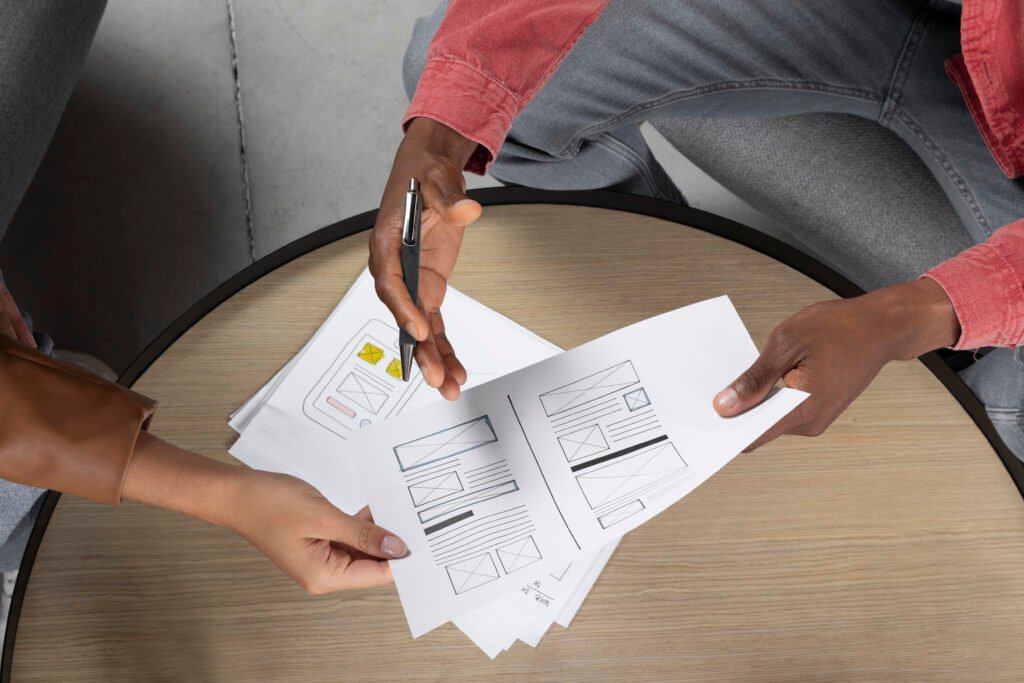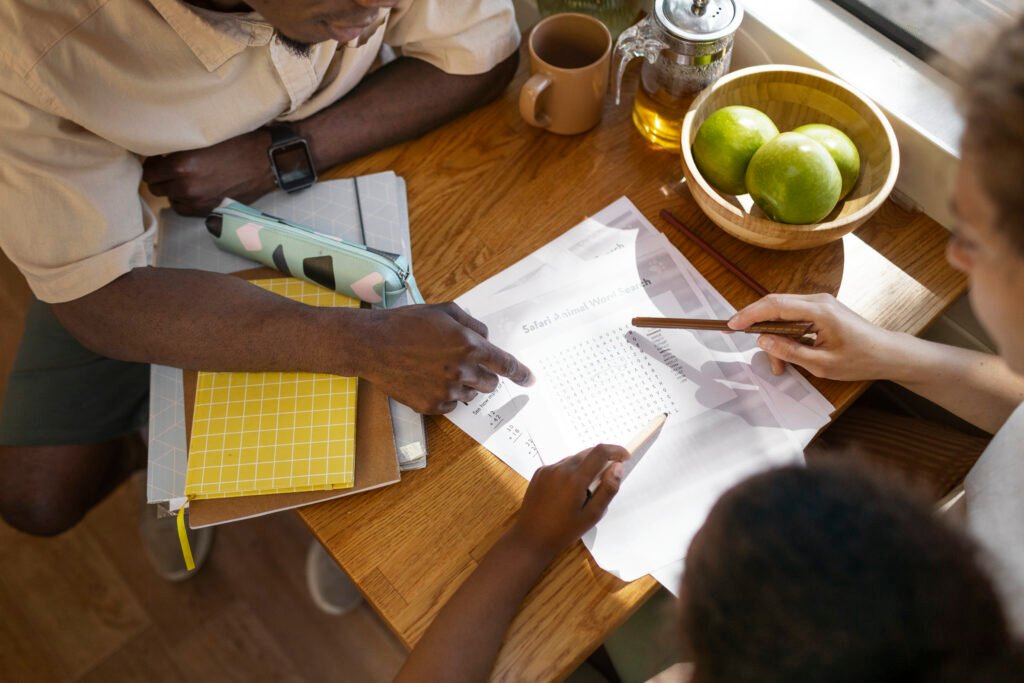
MOVE-IN CHECKLIST FOR LANDLORDS AND TENANTS IN 2025

Table of Contents
MOVE-IN CHECKLIST FOR LANDLORDS AND TENANTS IN 2025
Moving to a new house is the start of a new journey, one that proves to be an exciting yet often overwhelming experience. Whether you are a new landlord moving into your freshly-built house or newly acquired apartment, or you are a tenant moving from one location to another, a move-in checklist can be invaluable for you. The advantage of having a move-in checklist is that, amongst other things, it ensures that you have all the necessary items you need for your new place, and helps the process stay organized, making the transition smoother and less stressful.
That said, keeping track of everything you need for a new home via a move-in checklist could be challenging. The items on your checklist will depend largely on what you already own and what is included in your new house. This makes it important to assess your current belongings and be clear on what the new place offers before finalizing your list.

In essence, a good move-in checklist addresses the unique needs and responsibilities of individuals and is therefore peculiar to each new landlord or tenant.
In this article, we explore the essential elements of a move-in checklist for the contemporary Nigerian home landscape to ensure that whether you are a new landlord or tenant, you have a smooth transition.
However, let’s start by first understanding the rental landscape, especially for a new tenant in Nigeria. Considering the larger question of the broader context of the rental market in Nigeria in 2025, it is worth stating that the influx of people into urban areas has led to a surge in demand for rental properties prompting landlords to adopt more professional management practices.
In 2025, even in countries like Nigeria, tenants are becoming increasingly enlightened and informed about making their transition right, often leveraging technology to make informed decisions. This arrangement requires a well-planned and structured approach to property rental, which is where the move-in checklist comes into play.

Overview of a Move-in Checklist for both Landlords and Tenants
A move-in checklist for Apartments or houses in Nigeria in 2025 served as a vital tool for both landlords who are giving out the apartment and tenants. The move-in checklist outlines the necessary steps and considerations before, during and after the move. It ensures, amongst others things, that all parties are on the same page regarding expectations, responsibilities and property conditions. In this article, we break down the move-in checklist into three main categories: Pre-Move Preparations, Move-In Day Essentials and Post-Move Responsibilities.
Number 1: Pre-Move-In Preparations
A. For Landlords:
The following are pre-move-in Day Preparations for Landlords:
1. Property Inspection and Maintenance: – As landlord, before giving out the property for occupation, carry out a thorough inspection of your property to identify and address any maintenance issues, including plumbing, electrical systems, and structural integrity that might be present. Ensure that the property meets safety standards, including fire alarms (if available) and secure locks. In essence, make sure that the property you are giving out is in good condition before move-in by the tenant.
2. Carry Out Required Documentation and Legal Compliance
Before the tenant move-in to the house, prepare a rental agreement that clearly outlines the terms of the lease, including rent amount, payment schedule, and duration of the tenancy. While doing this, ensure adherence to local rental laws and regulations to avoid legal disputes in future.
3. Transfer of Utilities
Depending on the type of house, if there are existing utility accounts such as electricity, water or gas, transfer same to the tenant’s name before move-in. It is often advised that in doing so, you clarify who is responsible for payment. Furthermore, provide tenants with information on how to set up any applicable service such as wifi.
4. Cleaning and Preparation
While it is the duty of the tenant to clean his or her newly rented apartment moving in, especially in this part of the world, you may take it upon yourself as the landlord to clean the apartment before handing over to the tenant. If it is a newly completed house, you should ensure the property is properly cleaned and presentable before the tenant moves in, including deep cleaning carpets, windows, and appliances.

B. For Tenants
1. Conduct Adequate Research and Documentation
One of the first items on a move-in checklist for tenants is to gather necessary documents, such as identification, proof of income, and references, to facilitate the rental application process. In some parts of Nigeria, this may not be required, but depending on the location from where you aim to rent an apartment, you should have all these documents handy.
Once transaction has been made on the house, ensure to review the rental agreement thoroughly, seeking clarification on any terms that are unclear.
2. Budgeting for Move-In Costs
Even before talking about moving in, you first must rent an apartment. It is important that while creating your budget for the apartment, create a budget for your move-in cost, which will include the cost of moving logistics, cleaning and repair, where necessary. Your move-in checklist is incomplete without a realistic budget.
3. Moving Logistics
As the day for your move-in approaches, organize a moving plan that includes hiring movers or enlisting friends and family for assistance. There are logistics companies who can professionally move your things with little or no damage to your belongings.
Also, create an inventory of belongings to keep track of items during the move.
4. Get a Hang on the Available Utilities and Services
Again, if your area is one of the highbrow neighborhoods where utilities are subscribed for, it might help for you to research utility providers in the area and schedule the setup of essential services for the move-in date.

Number 2: Move-In Day Essentials
Even though activities for the move-in day are primarily for the tenant to deal with, the landlord, however has some roles to play.
A. For Landlords
1. Consider Doing a Final Property Walkthrough
On the day of the move-in, its advised that you conduct a final walkthrough with the tenant to ensure they are satisfied with the property’s condition and address any last-minute concerns that they may have. The landlord may choose to allow the agent do this where he is not available.
Document any existing damages to avoid disputes later. This is important so that it can also be reflected I the agreement.
2. Handover of Keys
Provide the tenant with all necessary keys, including those for the main entrance, mailbox, and any communal areas. The tenant can only take full possession of the house after the key has been handed over. Consider using smart locks or keyless entry systems for added convenience and security.
3. Welcome Package
To aid his/her settlement into the house or apartment, you are encouraged to prepare a welcome package for the tenant that includes essential information about the property, emergency contacts, and local amenities.
B. For Tenants
1. Take Inventory
On the day of your move-in, conduct an inventory check of the property to ensure all appliances and fixtures are in working order and match what was agreed upon in the rental agreement. It’s advisable that you do this alongside the landlord or agent so that you are on the same page.
2. Secure Important Documents
Keep a copy of the rental agreement and any correspondence with the landlord in a safe place for future reference.
3. Set Up Utilities
While taking the inventory of the apartment, confirm that all utilities are functioning and set up according to the agreed-upon arrangements.
4. Unpacking and Organizing
After your properties have been safely delivered whether by a logistics company or through help of friends and family, begin unpacking and organizing belongings in a way that optimizes space and functionality.
5. Keep essentials handy: It is almost impossible for you to completely arrange all your belongings in the house. Therefore, while unpacking, it is advisable for you to keep essentials handy pending when you have everything sorted.
i. Kitchen: While you may not be in the mood for cooking after a strenuous move, you might still want some hot food or drinks. Hence, have the following kept where they can easily be found:
Matches
Microwave
Cutlery
Crockery
Glasses
Mugs
Sharp knives
Can opener
Baking tray
Pots and pans
Bottle opener
Wooden spoon
Salt and pepper shakers
Scales
Measuring jug
Mixing bowl
Serving platter
Oven gloves etc.
ii. Bathroom
Bathrooms are generally already kitted out with the essentials (toilet, sink, shower and/or bath). The following moving home checklist essentials cover everything you’ll need for the first morning you wake up in your new home:
Hand towel
Towel
Bathroom mat
Toilet brush
Toilet roll
Toilet roll holder
Soap
Toothbrush
Toothpaste
Shower squeegee
Bin
iii. Sitting room: The following are checklist of items you might immediately need after move-in:
Sofa (or comfortable chairs to sit on)
TV, with something to put it on (either a TV stand or a bracket to fix onto the wall)
A TV cable
Wi-Fi (so you can watch Netflix)
Lamp
iv. Bedroom
Of course, a bed is the main thing to have in your new bedroom. But there are a few other moving home essentials that must be on your checklist to be set up on day 1:
Duvet and pillows
Bedding (duvet cover and pillowcases)
Bedside table
Bedside lamp
Wardrobe
Hangers for your clothes
Chest of drawers
A mirror
Curtains
v. Other essentials for a new home
All homes should have a box of medicine, a first aid kit and a few necessary grooming products. So, while unpacking, have the following products handy:
Painkillers
Disinfectant
Plasters
Bandages
Thermometer
Nail scissors/clippers
Pens
Paper
Scissors
Sellotape
Other things you might need to have handy while unpacking and for the entire duration of the settle-in period are tools such as :
Ladder
Plug extension leads
Light bulbs
Batteries
Hammer
Measuring tape
Pliers
Screwdrivers (flat and Phillips heads)
Screws

Number 3: Post-Move Responsibilities
A. For Landlords
1. Establish Regular Communication
Even after your tenant moves in, establish a communication channel with the tenant to address any issues that may arise during the tenancy. Schedule regular property inspections to ensure maintenance and upkeep.
2. Document Management
Maintain organized records of all communications, payments, and maintenance requests related to the property.
3. Feedback and Improvement
Solicit feedback from tenants regarding their experience and make improvements where necessary to enhance future rental experiences.
B. For Tenants
1. Understanding Responsibilities
After you move-in, familiarize yourself with the terms of the rental agreement, including maintenance responsibilities and payment deadlines.
2. Reporting Issues
Promptly report any maintenance issues or concerns to the landlord to ensure timely resolution.
3. Community Engagement
Engage with the local community and neighbors to foster a sense of belonging and establish a supportive network.

Number 4: Financial Management
Set up a budget to manage monthly rent and utility payments effectively, ensuring timely payments to avoid penalties.
Conclusion
The aforementioned form the core of the move-in checklist for a landlord and tenant in 2025. The move-in checklist for landlords and tenants in 2025 encapsulates the evolving nature of the rental market. As both parties navigate this landscape, a structured approach to the move-in process can significantly reduce misunderstandings and foster positive relationships. By addressing pre-move preparations, move-in day essentials, and post-move responsibilities, landlords and tenants can ensure a seamless transition into their new arrangements.








